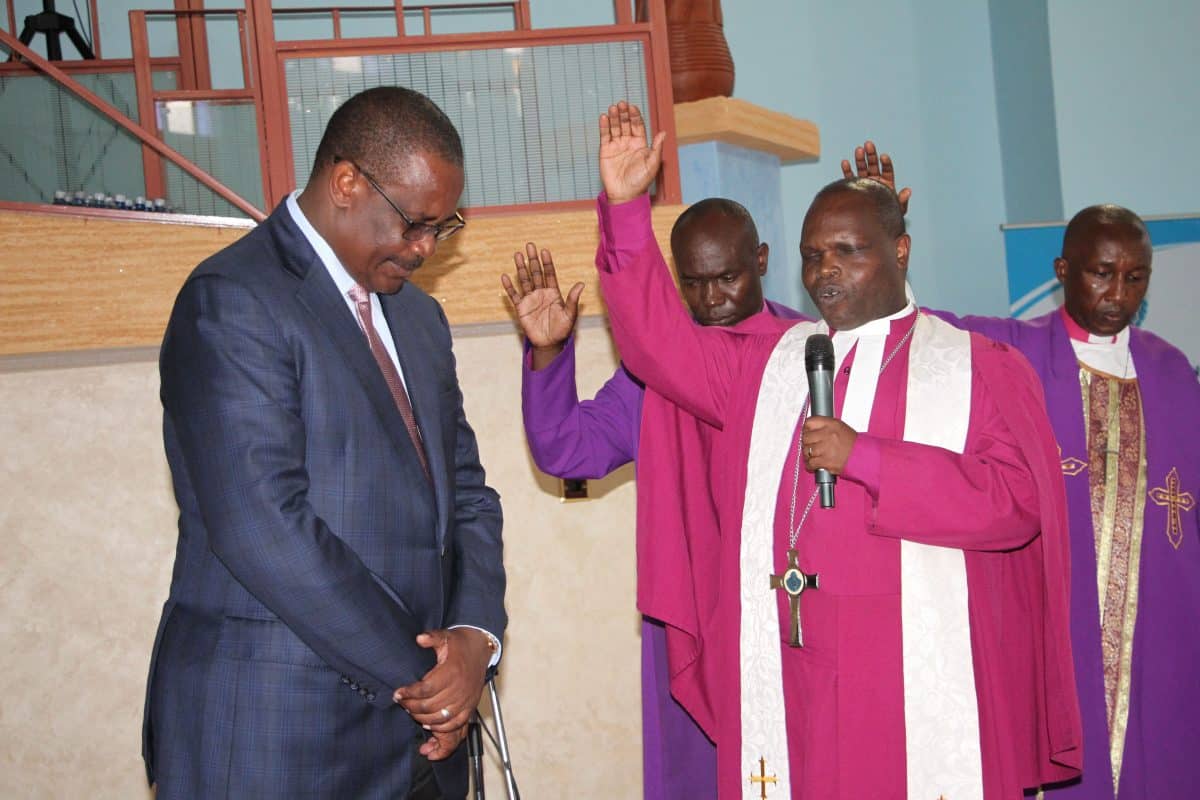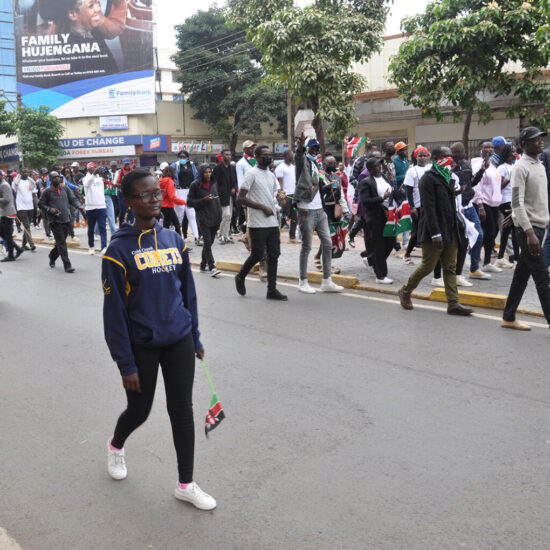
NAIROBI, Kenya (RNS) — Some churches in Kenya have barred politicians from addressing their congregations, saying campaigning during services disrespects the sanctity of worship. The national Anglican, Presbyterian, and Roman Catholic churches have all issued bans, as many of the politicians begin early stumping for next year’s general elections.
The Methodist Church, however, is not. Rev. Joseph Ntombura, presiding bishop of the Methodist Church in Kenya, has said his church is not dissenting from the effort but is taking a different approach. The bishop said shutting the doors to politicians would mean discriminating against some of its members.
“The church is for all people,” Ntombura told Religion News Service in a telephone interview. “Human beings are political, so there is nothing wrong with inviting the politicians in church.”

Rev. Joseph Ntombura (with microphone), presiding Bishop of the Methodist Church in Kenya, prays over former Nairobi Governor Evans Kidero (left) in November 2015. (Fredrick Nzwili/Religion News Service)
According to the bishop, congregations need to hear the views of politicians on issues of national interest, such as the sharing of resources. In the past, Ntombura said, the church has invited other experts to speak to congregations on important matters, and politicians are no different.
“Some of the politicians are our pastors,” said Ntombura.
Kenya is about 85% Christian. About 33% of that group are Protestants and 20.6% are Catholic. The rest belong to evangelical, Pentecostal, and African denominations. Muslims make up 11% of the population.
In issuing the bans on politicking in church, denominations have said they feared that church services would become campaign rallies and that candidates would use language bordering on hate speech in an attempt to win votes or sway the views of congregations. In the past, politicians hijacked church services to sell their agendas or criticize their opponents. Some have appeared in the churches with huge sums of money as offerings or as funds for church projects.
The no-politicking effort gained momentum this month when Archbishop Jackson Ole Sapit, the Anglican primate of Kenya, announced his church’s ban.
“Everyone is welcome in the churches, but we have the pews and the pulpit,” said Ole Sapit on Sept. 12, during the ordination of Kenya’s first Anglican woman bishop. “The pulpit is for the clergy and the pews for everyone who comes to worship.”
On Sept. 15, the Roman Catholic bishops said their places of worship and liturgy were sacred and were not political arenas. They urged politicians to attend Mass just like any other worshippers.
Analysts say the churches are seeking to reclaim their position as “honest arbitrators” in a country where elections often generate violent conflicts. The most deadly came in December 2007 and January 2008, when two months of ethnic fighting left at least 1,000 people dead and more than 600,000 displaced from their homes. Among them, 30 people, mainly ethnic Kikuyu, Kenya’s largest tribe, were burnt alive in an Assemblies of God church in Kiambaa Village in Eldoret.
Henry Njagi, program and information manager at the National Council of Churches of Kenya, said resistance to church guidelines on political speech risks a repeat of the events of 2008.
“When things went wrong, they turned around and accused the church of being silent and abandoning Kenyans,” said Njagi. “So right now is a call on political actors, aspirants and other stakeholders to listen to the church … and stop toxic politicking.”
Though the politicians have not been as present at mosques, Muslim leaders say they are supporting the ban on toxic politicking in the churches.
“I support the Christian leaders. Such a ban is long overdue,” said Sheikh Hassan Ole Naado, national chairman of the Supreme Council of Kenya Muslims.
He added that Muslims were not facing the issue at the moment.
“When you go to a place of worship, you know what you are supposed to do. They are taking advantage of people who are gathered for worship. It should not happen in the first place,” said Ole Naado.






